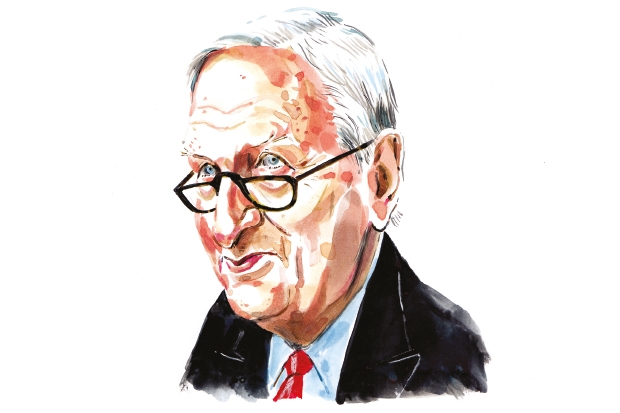One of the most influential and learned figures in the British European debate is Rodney Leach. In the 1990s, he helped lead those of his fellow businessmen who became convinced that the abolition of the pound would be a disaster. He was a moving spirit in Business for Sterling and then in the ‘No’ campaign against the euro. This did much to persuade Gordon Brown, as Chancellor, to ditch euro entry plans in 2004. The following year, Lord Leach set up Open Europe, and continues as its chairman to this day. It is the most trusted think tank for research and debate on all EU questions, and is incredibly useful for the media because of its daily press digests, which enable us to follow the debate across the entire Continent. Open Europe has always been Eurosceptic in the exact meaning of that word — not necessarily opposed, but questioning. Its first two directors went on to work for pro-EU politicians — Neil O’Brien, now an adviser to George Osborne, and Mats Persson, who now works for David Cameron on European issues. As its name suggests, it has always held, to quote Rodney’s statement at the head of its website, that Britain ‘can be successful either inside or outside the EU if it pursues free market and liberal economic policies’. Michael Gove, of Leave, and Alistair Darling, of Remain, have said how much, in this referendum campaign, they use Open Europe material. The think-tank’s policy is that it will have no group line on how to vote but that members of its board are free to express their personal views publicly, either way. Some already have. As the vote approached, many of us naturally wanted to know what Leach himself thought.
A good many Leave campaigners were suspicious that he had been suborned by Downing Street. I too, who know Rodney and trust his motives and understand that he makes up his own mind about everything in the light of evidence, thought that he was veering towards Remain. When I had breakfast with him in January, for example, he said that he agreed with the stated aims of David Cameron’s negotiations then in progress and worried that this might be a bad time to leave. (Actually, I agreed with them too, but said I didn’t think the Prime Minister was getting far with them.) He emphasised that he still had not decided, but said he would once Mr Cameron had declared battle joined. On 18 April, however, while on stage chairing an Open Europe referendum debate, Rodney had a massive stroke. His life was saved by a surgeon who happened to be present, but the poor man has not regained full consciousness. Does his view on how to vote therefore remain unknown or even, perhaps, unformed?
In fact, Rodney Leach did decide. I have been allowed to see and use an email which he sent to a friend in March, after Mr Cameron had returned from Brussels with his deal and we therefore all knew exactly what was on offer. This (apart from personal courtesies) is the full text:
‘My own view of the big issue is that the EU should shrink back to its ideological comfort zone — those who believe in a political and monetary union: that means Germany (from fear of its own demons), Austria (equally guilty), Belgium (disintegrated “capital” of the bureaucracy), and weak hangers-on.
‘We aren’t ever going to sacrifice our democracy and the EU cannot ever develop a democracy, as it hasn’t got a demos. So whatever others do, we won’t join.
‘In theory the shrinkage could be done either (a) by making the existing market the EU’s sole definition or (b) by us exiting and over time creating a new Europe-wide market. I used to favour (a) but the EU’s grim, grudging approach to the negotiations shows that they aren’t — or aren’t yet — willing to accommodate themselves to the planet’s oldest democracy. So it has to be exit, painful though that may temporarily be.
‘Nevertheless, if Remain wins, the reality won’t change and I intend to continue the battle. The EU’s probable monetary and migratory implosion will help us win.’
This is the considered judgment of the sceptic, rather than the phobe or the phile. We must all pray that it is not Rodney Leach’s last word on the subject, but if it is, it is fittingly clear.







Comments